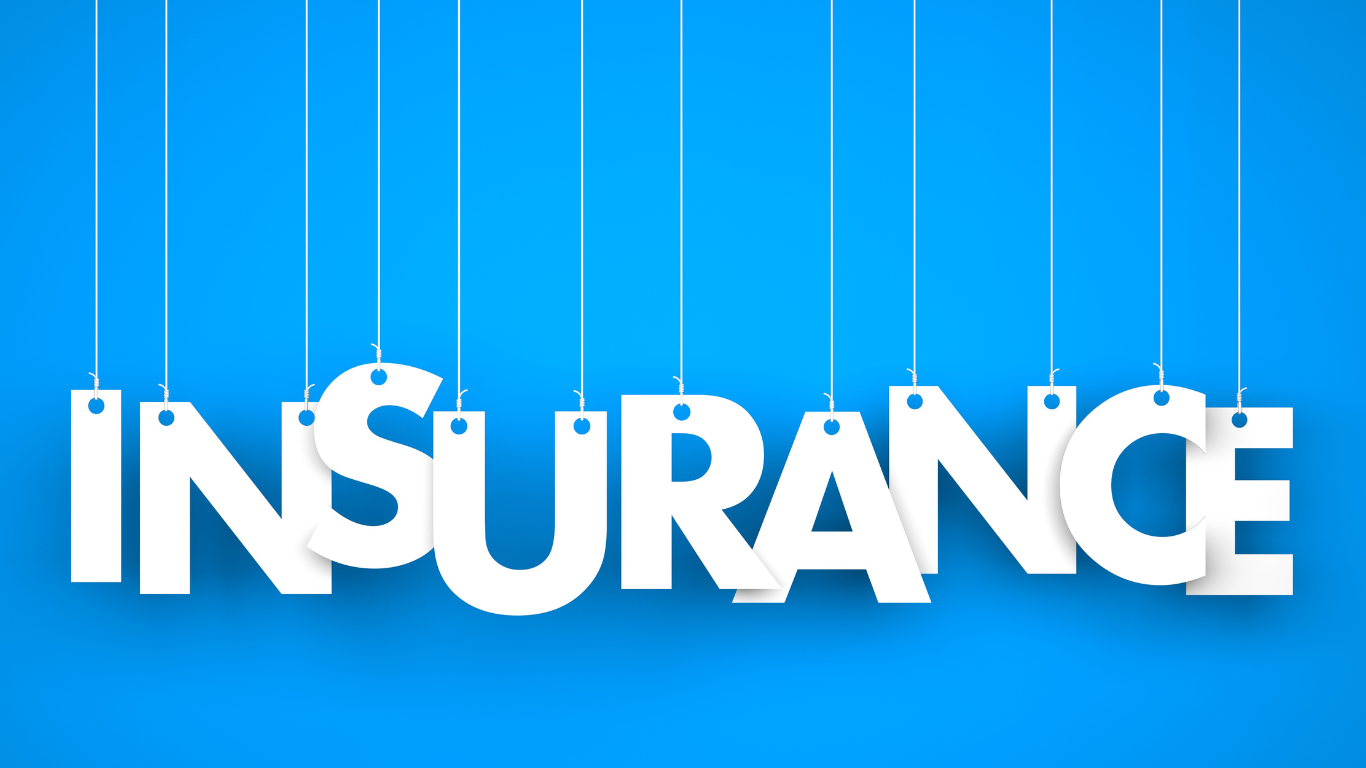Regulations
Shielding Security Guard Companies: Exploring the Importance of Liability Insurance
Security companies should know their potential liabilities and the measures taken to mitigate them. This article is about insurance for security businesses. It can help to protect security businesses. Let us discuss why having insurance is so important and how it can help your security business be success.
By David Kerolles
November 13, 2023

Security companies should know their potential liabilities and the measures taken to mitigate them. This article is about insurance for security businesses. It can help to protect security businesses. Let us discuss why having insurance is so important and how it can help your security business be successful for a long time.
The Role of Liability Insurance in Security Services
Security services face constant change. Their goal is simple, keep people and things safe. Yet, their world is full of risks. So, the importance of liability insurance is clear. This is a vital component in running a security services company. It is like a safety net made of dollars, a policy made to help security guard companies breathe easy.
Liability insurance is needed in a field known for surprises and challenges. As security companies guard many places like shopping centers, homes, parties, and factories, they boost safety, but possible risks also rise. Damaged property, physical harm, or even just an “oops” moment can all be issues. And these are all potential legal liabilities.
Why is liability insurance needed? Let’s jump in and understand its importance:
Financial Protection
Liability insurance acts as a strong shield for security companies. It helps them protect their money when unexpected stuff happens. In the security business, things can go wrong in a snap. This can include people slipping and falling at a customer’s place or complaints of not doing safety jobs correctly. Without liability insurance, these issues can be a big problem for a security firm’s money matters.
Think about a case where a security worker from the company accidentally hurts a visitor during his shift. Without liability insurance, the security firm could be in a bad place. It might have to pay the whole amount of healthcare expenses, legal costs, and possible lawsuit money. These experiences could balloon quickly. It could put such a heavy load on the company that it might not be able to survive anymore.
Liability insurance lets them concentrate on their main job of keeping clients safe with the comfort of knowing they have a backup plan for surprise events. This feeling of safety can be a good thing to get more clients. It shows that the firm takes responsibility and is financially stable.
Liability insurance acts like a saving angel, taking care of big costs. It pays for things like medical needs, lawyer fees, and any money decisions that come from the event. This type of money protection is priceless. It keeps the company’s money safe and makes sure that the person who got hurt gets the money they need.
Liability insurance is more than a piece of paper. It’s an important shield that protects a security company from the money dangers of accidents that no one saw coming. In the end, it guarantees that the security company can keep on doing its job of protecting clients and their stuff without worrying about losing all its money.
Legal Compliance
For security guard companies, having liability insurance isn’t just smart – it’s often the law. This requirement doesn’t just protect the company. It shields clients and the public too. By holding the right insurance, your security business not only acts responsibly but also meets important legal duties.
Ensuring that you have the mandatory liability insurance proves a security firm’s commitment to act legally and responsible. Breaking these laws can mean big trouble – fines, losing your license, or even potential criminal charges. This not only hurts a company’s image but can also threaten its survival.
Also, clients often ask to see proof of liability insurance. That’s how important it is in this industry. They want to work with reliable companies that can deal with surprise issues without draining their savings.
Again, insurance for liabilities isn’t just a smart option for security firms. In numerous locales, it’s required by law. Having the appropriate insurance is not only about legal compliance. It guards your enterprise against potential legal issues, fines, or monetary damages. Moreover, robust insurance increases your firm’s reputation and attraction to customers seeking dependable, law-abiding security provisions.
Peace of Mind
Running a security firm keeps you always on high alert. It’s quite stressful, with lots of duties, risks, and problems. Liability insurance is a crucial relief for security executives and security staff. It’s a safety net for unexpected legal and money issues, lessening worry related to protecting folks and their stuff.
A security firm’s day is full of looking out for dangers and possible issues. Liability insurance provides a buffer against the unknown. This means executives and security personnel can relax more, knowing that if surprise problems pop up, they’re not alone. This comfort is priceless. It lets security personnel focus on good security work and keeping clients safe – not worrying about money problems.
Further, liability insurance doesn’t just help the executives. It supports staff and security workers in tough spots. Being supported by solid insurance can boost team spirit and assurance, helping them work better. It brings a sense of safety to the whole company, building a professional and responsible culture that improves the security services they provide. To sum up, liability insurance protects a company’s financial health and helps build a solid, focused team. This helps both the business and its clients.
10 Tips for Selecting the Right Liability Insurance Policy
Choosing the right liability insurance policy for your security guard company is a crucial decision that can significantly impact your business’s financial security and overall success.
Having suitable liability insurance means your security company is ready to handle the tough parts of the industry. You can manage risks well. Plus, you’re set to succeed in a world that values safety and security above all.
With the right liability insurance policies in hand, your security firm is well-positioned to navigate the complexities of the industry, mitigate risks effectively, and thrive in an environment where security and safety are paramount.
To help you navigate this process effectively, consider the following tips when selecting the insurance policy that best suits your needs:
- Assess Your Risks
Do a risk inventory first. This means you need to take a close look at the specific problems your company could run into. Think about things like property destruction, injury, or negligence claims. By doing this, you’ll know the weak spots your business might have. Like planning a building, you need a blueprint of the land before you can build.
The next step is to get insurance that suits your needs, not a generic plan. This part is crucial. Work with your insurance provider and use what you learned from your risk inventory. You should select the best coverage options for your business. In other words, know your risks and cover them. That way, your business can operate with sure footing, ready for whatever comes.
- Work with an Experienced Broker
Engage the services of an experienced insurance broker specializing in liability insurance for security companies. A knowledgeable broker can help you navigate the complexities of insurance policies, offer expert guidance, and provide access to a wide range of insurance providers.
- Understand Policy Types
Familiarize yourself with the different types of liability insurance policies available for security firms. Common options include general liability insurance, professional liability insurance (also known as errors and omissions insurance), and workers’ compensation insurance. Each type of policy addresses specific risks, so it’s essential to choose the ones that align with your business’s needs.
- Coverage Limits
Determine the appropriate coverage limits for your policies. This should take into account the potential liabilities you may face, the value of your assets, and the regulatory requirements in your jurisdiction. Adequate coverage limits ensure you are adequately protected in case of a significant claim.
- Policy Exclusions
Closely check the policy’s exceptions and restrictions. The details hold important information, and knowing this is critical. Spend time understanding the fine print and define what is covered and what’s not. Be sure to look at any exceptions relating specifically to your field or how security work operates.
All policies, no matter how detailed, have limits, and it’s crucial to know these to prevent unexpected issues later. By doing this, you can make smart choices about your company’s risk plan. This detailed check ensures you’re ready for situations your insurance might not cover. In the end, the detailed look at policy exceptions and restrictions is a vital step in safeguarding your security company against dangers and running a strong, risk-conscious operation.
- Consider a Package Policy
Some insurance providers offer package policies tailored to security companies. These policies combine various coverages into one comprehensive plan, potentially offering cost savings and simplified management.
- Evaluate Deductibles
Assess the deductibles associated with the insurance policies you are considering. A higher deductible can lower your premium, but it also means you will have to cover a larger portion of a claim out of pocket. Find the right balance that aligns with your financial capabilities.
- Seek References
Ask your insurance broker for references or case studies of security companies they have assisted in the past. Learning from the experiences of others in your industry can provide valuable insights into selecting the right policy.
- Compare Quotes
Obtain quotes from multiple insurance providers to compare coverage options, pricing, and policy terms. Keep in mind that the cheapest policy may not necessarily provide the best protection, so consider all factors when making your decision.
- Review and Update Regularly
Your business will evolve, and so should your insurance coverage. Regularly review your policies and update them to reflect any changes in your operations, risks, or assets. Failure to do so could leave you underinsured or overpaying for coverage you no longer need.
- Seek Legal and Financial Advice
Before finalizing any insurance policy, it’s advisable to consult with legal and financial professionals who are well-versed in the security industry. They can provide additional insights and ensure that your insurance choices align with your overall business strategy.
By following these tips and carefully considering your options, you can select the right liability insurance policy that provides comprehensive protection and peace of mind for your security guard company.
Conclusion
Security guard companies deal with unexpected events and risks. To face this, they need liability insurance. We’ve seen the many perks of liability insurance. It shields your money, keeps you legal, lessens risks, and builds creditability. It also helps your business keep afloat for a long while, giving you peace of mind.
You must choose your liability insurance with care. Think about coverages, caps, exceptions, and deductibles. It’s about getting the protection you need without breaking the bank. Regularly check and update your policies to line up with your ever-changing business purposes.
Competition is tough in the world of security services. Here, liability insurance is more than just safety – it’s a strategy. It makes you stand out and builds faith among your customers and partners.
Going ahead in the security field, don’t forget that picking the right liability insurance helps your business stay strong. It gives you the peace of mind to concentrate on your real job—offering the best security services. You’ve got a reliable backup for unexpected problems.
Related Posts
Regulations
State security regulations can be complex. But for security service providers, understanding them is key. These rules aren't just about legal issues. They protect the public. Plus, they can make your business look good. It shields you legally. And it makes you look like a top-notch player in the business.
By David Kerolles
June 28, 2023
Regulations
Security has always been a paramount concern for civilizations, be it in the form of fortified castles in the Middle Ages or surveillance cameras in today’s digital age. The methods and means have evolved, and nowhere is this evolution more evident than in security patrol services. In the modern era, as threats become more multifaceted […]
By David Kerolles
August 27, 2023
Business Growth
Technological progress has profoundly transformed the realm of surveillance equipment, delivering unparalleled functionalities for safety and supervision in this digital era. Integrating artificial intelligence (AI) and improving image recognition has not only boosted surveillance efficiency but also sparked crucial debates concerning privacy and ethical implications.
By Richelle Mayor
November 29, 2023






